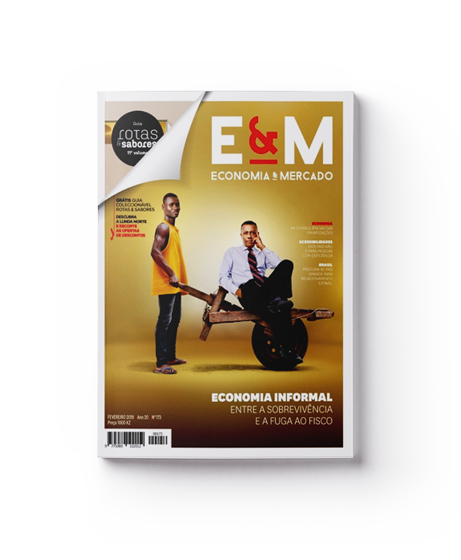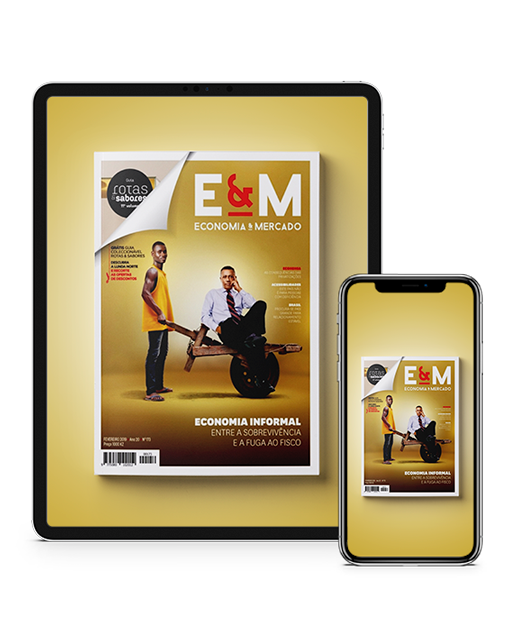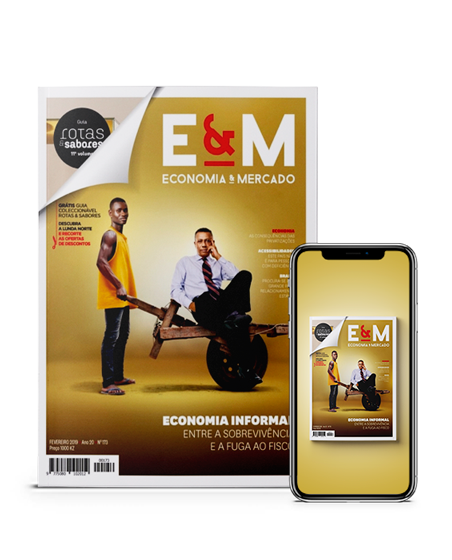O peso do sector informal no Produto Interno Bruto diz muito, não só sobre o que o Estado perde em termos de receitas fiscais, mas também sobre a qualidade de vida das pessoas, considerando o nível de precariedade dos trabalhos informais.
Há quase dois anos a lidar com a pandemia da Covid-19, o mundo registou, nesse período, um aumento significativo do trabalho informal, devido à perda massiva de empregos, e Angola não passou inume desse “vendaval”.
Aliás, de acordo com a Organização das Nações Unidas (ONU), em termos percentuais, a África Subsariana tem os níveis de formalidade mais altos do mundo, 36%, contra 22% no Médio Oriente e Norte de África, o que significa que o problema de Angola é ainda maior. Temos um nível de formalidade na economia quase o dobro da média da África Subsariana e do que o dobro da média das duas últimas regiões. No Sul da Ásia e na África Subsaariana, descreve ainda a ONU, a informalidade generalizada é, em grande parte, o resultado do baixo capital humano e de grandes sectores agrícolas, enquanto na Europa e Ásia Central, América Latina e Caribe, Oriente Médio e Norte da África, os pesados encargos regulatórios e fiscais e as instituições deficientes são factores importantes que impulsionam a informalidade.
Entretanto, com a Covid-19, a informalidade ganhou terreno e receia-se, assim, uma recuperação das economias muito mais lenta, daí que a ONU recomenda que os países adoptem pacotes abrangentes de políticas que enfrentem os desafios do sector informal, onde a maioria dos trabalhadores são mulheres e jovens com baixas qualificações profissionais e, portanto, sem protecção social à margem de políticas de investimentos e auxílio.
Com o lançamento do PREI, que não é de todo novo, o Governo angolano pode atender a alguns destes desafios, como o alargamento dos beneficiários da Segurança Social ou, ainda, um maior acesso ao crédito, porém é necessário que, acima de tudo, se desburocratize o sector formal da economia, na medida em que quem hoje opera no informal está acostumado a um sistema menos fiável, mas flexível, eficaz e dinâmico. No final do dia, o que importa é render. E o sector informal é muito rentável…
Leia o artigo completo na edição de Dezembro, já disponível no aplicativo E&M para Android e em login (appeconomiaemercado.com).
The power of informal
In November, the Angolan government launched the PREI, Program for the Reconversion of the Informal Economy, which foresees formalizing of up to two thousand micro-enterprises at a time when the weight of the informal sector in the GDP is around 65%, which says a lot not only about what the State loses in terms of tax revenues, but also about the quality of life of the people, considering the level of precariousness of informal jobs.
In the nearly two years of dealing with the Covid-19 pandemic, the world has registered a significant increase in informal work, due to the massive loss of jobs, and Angola has not escaped this “whirlwind” unscathed.
In fact, according to the United Nations Organization (UN), in percentage, Africa south of the Sahara has the highest levels of informality in the world, 36%, against 22% in the Middle East and North Africa, which means that Angola’s problem is even greater. We have a level of formality in the economy almost twice the average of Africa south of the Sahara and twice the average of the last two regions. In South Asia and Africa south of the Sahara, the UN further describes, widespread informality is largely the result of low human capital and large agricultural sectors, while in Europe and Central Asia, Latin America and the Caribbean, the Middle East and North Africa, heavy regulatory and fiscal burdens and weak institutions are major factors driving informality.
Meanwhile, with Covid-19, informality has gained ground and it is feared that economies will recover much more slowly, hence the UN recommends that countries adopt comprehensive policy packages that address the challenges of the informal sector, where the majority of workers are women and young people with low professional qualifications and therefore no social protection outside of the margins of investment and aid policies.
With the launching of PREI, which is not at all new, the Angolan government can meet some of these challenges, such as the enlargement of the beneficiaries of Social Security, or even greater access to credit, but it is necessary, above all, to deburocratize the formal sector of the economy, inasmuch as those who today operate in the informal sector are accustomed to a system that is less reliable, but more flexible, effective and dynamic. At the end of the day, what matters is to be profitable. And the informal sector is very profitable...
Read the full article in the December issue, now available on the E&M app for Android and at login (appeconomiaemercado.com).
.png)












